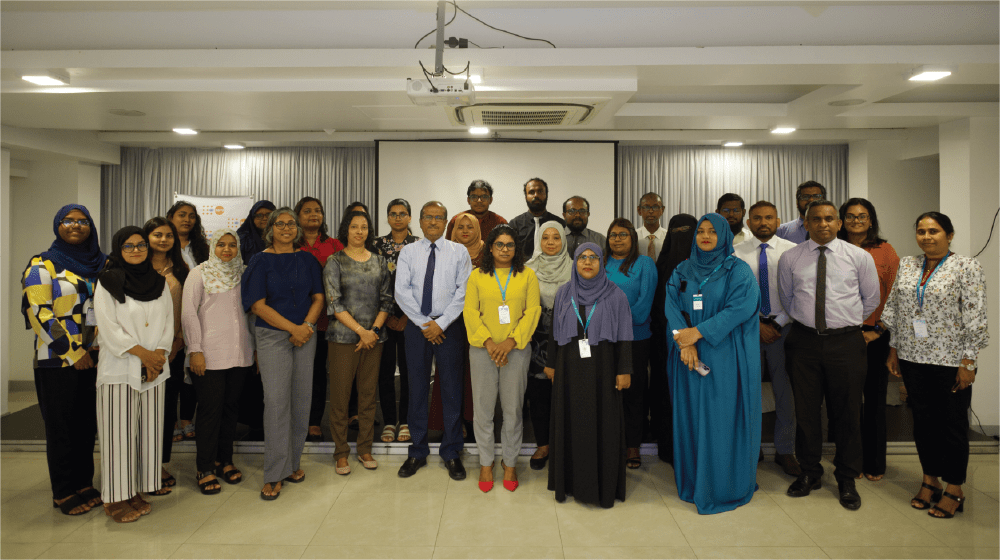What happens when key decision-makers and dedicated professionals unite their minds? On May 28th, 2023, UNFPA Maldives and the Maldives Bureau of Statistics unlocked this synergy, orchestrating the UN ESCAP’s voluntary national survey. This initiative aimed to assess the progress of the Maldives in implementing the 2013 Asian and Pacific Ministerial Declaration on Population and Development, and the Programme of Action for the International Conference on Population and Development (ICPD).
The ICPD Programme of Action underscores the integral relationship between development policies, human rights, and social and economic development, providing a comprehensive framework for Member States to enhance the quality of life and well-being of every individual. This voluntary survey represented the vital efforts to assess progress, identify challenges, and set the direction for future strategies.
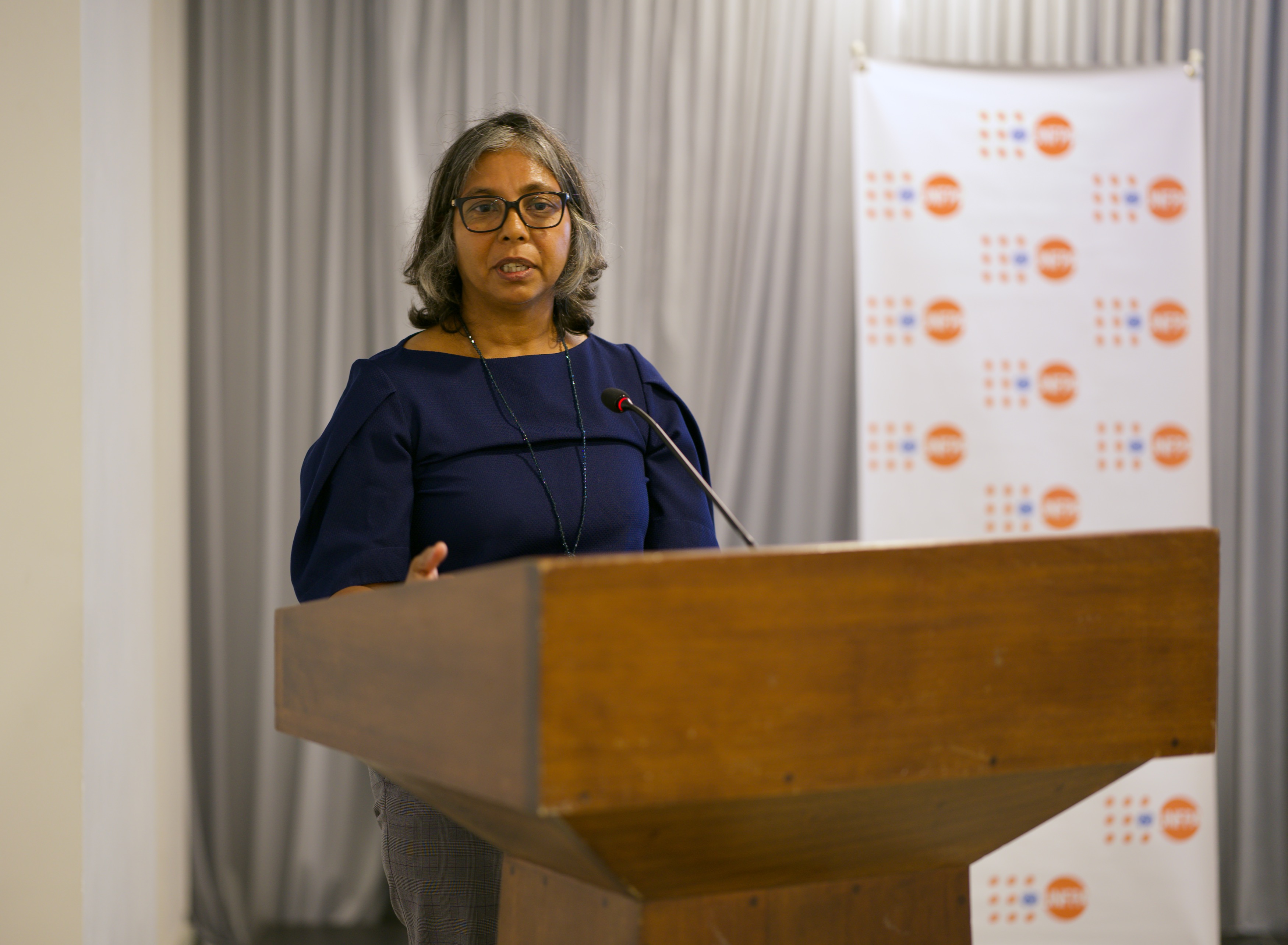
Our Head of Office, Shadiya Ibrahim, emphasized the importance of a widespread understanding of the ICPD and its pivotal role in shaping our approach to population and development issues. The ICPD, adopted over 30 years ago, stresses the fundamental tenets of human rights, reproductive rights, gender equality, and comprehensive strategies to meet the needs and rights of individuals. Moreover, it underlines the importance of collaboration between governments, civil society organizations, and international bodies.
The voluntary survey served as a tool not only to evaluate the Maldives’ position concerning ICPD’s goals, but also to stimulate a forward-thinking approach. It highlights the need for inclusivity, inviting input from not only the government, but also civil society representatives, private sector organizations and more broadly, from everyone.
The survey’s discussions centered around four thematic areas:
1. Poverty Eradication and Employment
2. Health, Sexual and Reproductive Health and Rights, Gender Equality and Women’s Empowerment, Ageing
3. Adolescents and Young People, Education
4. International Migration, Urbanization and Internal Migration, Population and Sustainable Development.
This workshop emerged as a dynamic platform for thought-provoking dialogues, challenging introspection, and the generation of inspiring perspectives:
Akram Hussain (Director General - Ministry of Gender, Family and Social Services) underlined the need for a comprehensive understanding of poverty and the imperative for a refined legislative approach towards poverty reduction. He stressed the critical role of multi-sectoral coordination in poverty reduction, highlighting the need to ensure that social subsidies and assistance reach the right set of people.
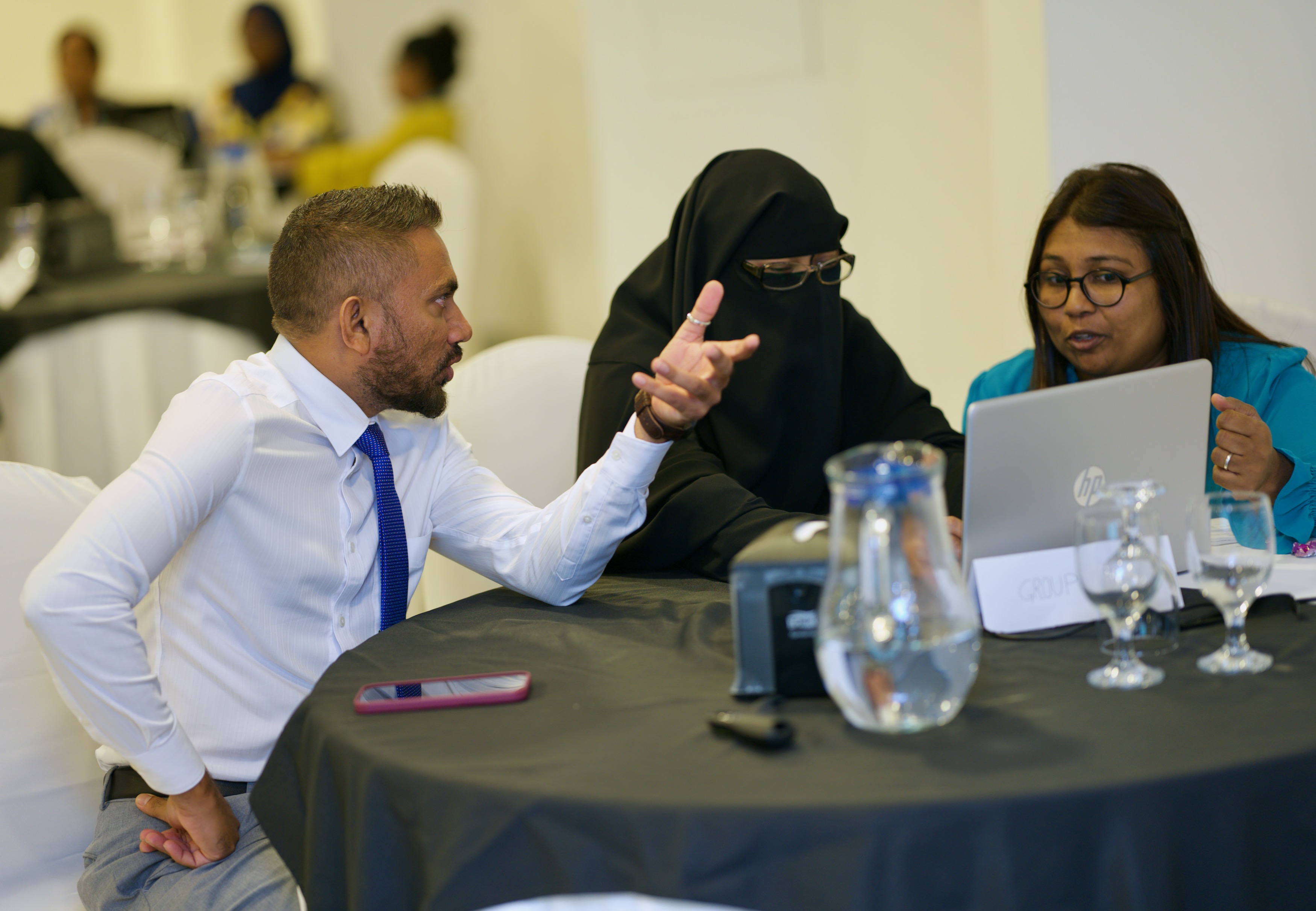
Adding a statistician’s precision to the mix, Fathimath Riyaza (Statistician - Maldives Bureau of Statistics) encouraged us to take stock of past experiences. Her advocacy for setting clear target goals for future efforts offered a practical and forward-thinking direction.
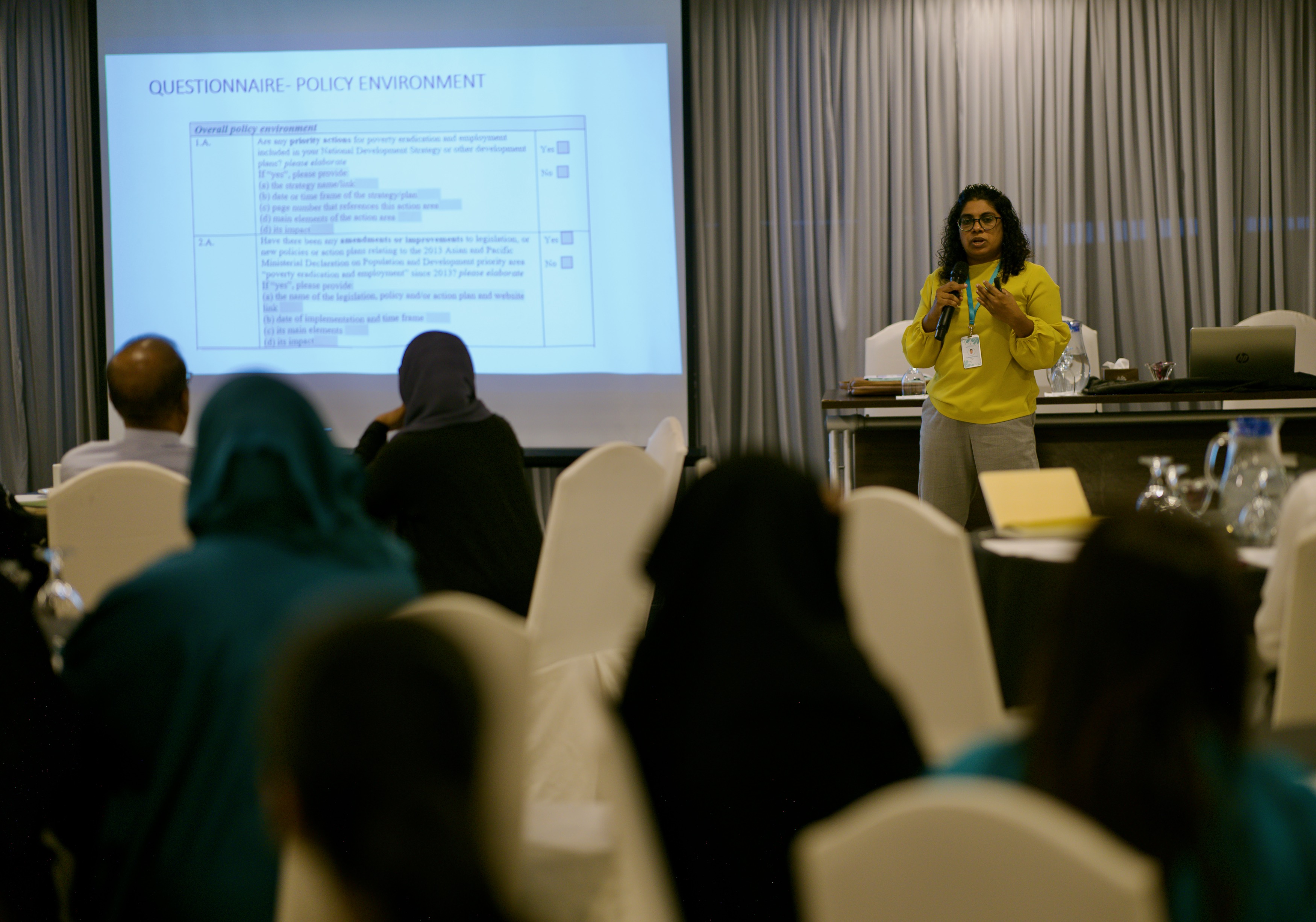
Further fostering a sense of unity, Aishath Saadh (Deputy Director General (SDG Division) - Ministry of National Planning, Housing and Infrastructure) championed the power of collective action. Participating in the group discussion on international migration, urbanization, population, and sustainable development, she emphasized the essence of collaboration for progress, emphasizing the importance of effectively addressing the multitude of issues faced by our society through a seamless dialogue and coordinated effort among all stakeholders; including the state, development partners, the private sector, academia, and civil society organizations.
She also asserted that our approaches to problem-solving should be rooted in evidence. To ensure that we reach our desired outcomes, decision-making must be informed, data-driven and strategic.
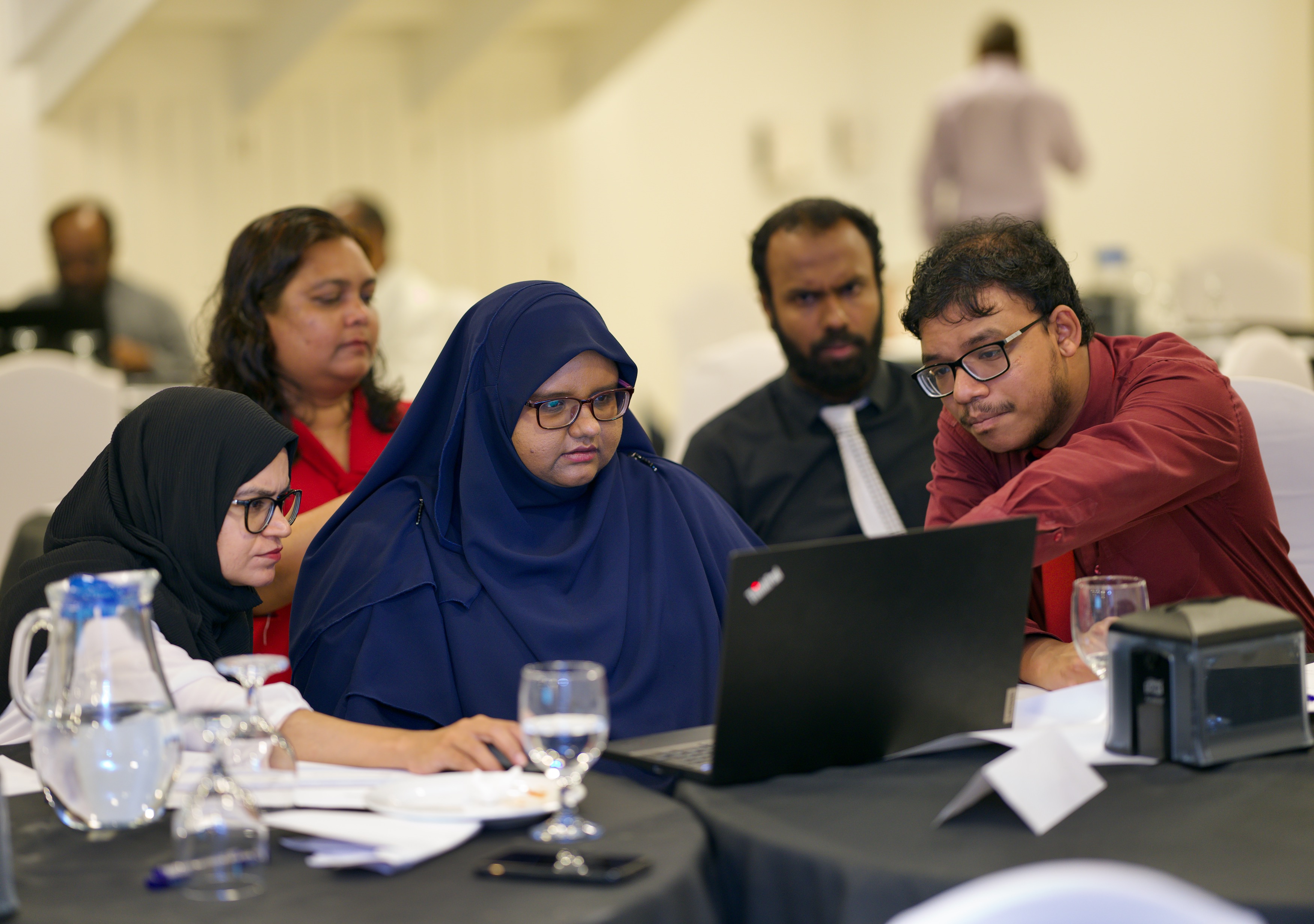
The rich tapestry of participants also included medical perspectives. Mariyam Jennifer, (Senior Medical Officer - Health Protection Agency) cherished the workshop as a fertile ground for exchange. Engaging with a diverse range of stakeholders, she emphasized how such interactions could foster enlightening discussions around the ICPD Programme of Action.
Lastly, but certainly not least, Mariyam Sidhmeen (Director - Ministry of Gender, Family and Social Services) turned the lens onto the survey itself. She lauded it as a crucial tool for harmonizing diverse impacts, contributing significantly to voluntary national survey reporting for ministerial conferences on population and development.
This stock take will be crucial in the forthcoming dialogues towards post Sustainable Development discussions and beyond. Together, we can create a future where every individual can enjoy their rights and contribute to the sustainable development of our nation.

